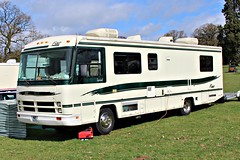Saving The Cataract Blind}

Find Out More About:
Submitted by: Tahmina Sultan
Blindness, especially related to cataracts, poses a major challenge all over the developing world. Bangladesh, as one of the developing countries, has a large number of blind people in need of cataract removal surgery. Cataract accounts for 80% of adult blindness in the country and there are currently somewhere in the region of 750,000 adults who are blind.
Cataract is the clouding of the eye’s lens – the part of the eye responsible for focusing light and producing clear, sharp images. A cataract occurs when the crystalline lens of the eye becomes cloudy or opaque as a result of age, illness, or trauma. This cloudiness can interfere with the eye’s natural ability to direct light and focus an image on the retina. As a result, individuals with cataracts frequently experience a loss of vision. Cataracts happen when proteins in the lens of the eye start to coagulate, forming a dense white layer of opaque material. Initially, a patient may not be aware that he or she has cataracts, and may attribute the decline in visibility to a need for new glasses. The only way to correct cataract blindness is to surgically remove the cataracts.
Although cataracts can be surgically removed, in many countries, surgical services are inadequate and cataracts remain as the leading cause of blindness. As people in the world live longer, the number of people with cataract grows. Cataract is commonly the cause of low vision in both developed and developing countries.
Cataract surgery is the removal of the lens inside the eye after it has become cloudy. In most cases, the cataract surgeon replace the cloudy natural lens with an artificial lens implant also called an intraocular lens, or (IOL) to restore vision and eliminate the need for thick glasses after surgery.
Blindness due to cataract presents an enormous problem in Bangladesh in terms of economic loss and social burden. Although cataract blindness is curable by cataract removal surgery, there are many barriers for it for the disadvantaged people of Bangladesh. Such as financial reasons, distance from the health care facility, fear, lack of service awareness, and lack of support. Financial barriers continue to be the major reason for the cataract blind being unable to afford surgery. Many people in Bangladesh who become cataract blind may remain blind for the rest of their life, becoming a burden to their family and to society.
Some nonprofit organizations provide the eye camp going in different parts of Bangladesh. On those camps local patients who are suffering from cataract, get selected by doctors to get their cataract removal surgery. All these patients are taken to BNBS Eye Hospital in Mymensingh to have their surgery. On third day these patients are brought back to their home. In each camp approximately 60 disadvantaged people get their free cataract removal surgery. Through this only a fraction of cataract blind population are saved from blindness in Bangladesh.
About the Author: Tahmina Sultan
touchingsoulsintl.orgfacebook.com/touchingsoulsintl.org
Source:
isnare.com
Permanent Link:
isnare.com/?aid=586689&ca=World+Affairs}
